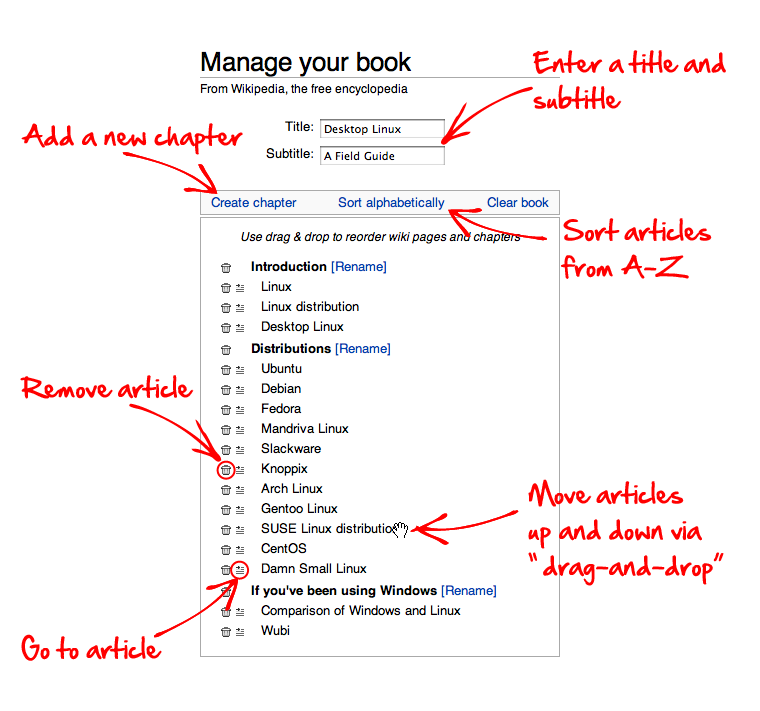
Help:Books - Wikipedia, the free encyclopedia
There are almost no limits when creating books from Wikipedia content. A good book focuses on a certain topic and covers it as well as possible. A meaningful title helps other users to have the correct expectation regarding the content of a book.



 Your new post is loading...
Your new post is loading...








For those of us marketing High value products online this great little tool can help us gather and organize the necessary information we need to help others learn about a specific subject - Chk out what Robin says abou this tool:
"Few people know that it is actually possible to curate Wikipedia content into custom print books or PDF / OpenDocument ebooks that contain exactly the content you want in the order you specify."
(Robin Good)
For thosse of us marketing online this tolol is worth checking out
Tim
I just love this democratisation of everything; here's self publishing delivered to a keyboard near you courtesy of Wikipedia ...
It's worth keeping in mind that some 'publishers' try to sell books based entirely on Wikipedia content.